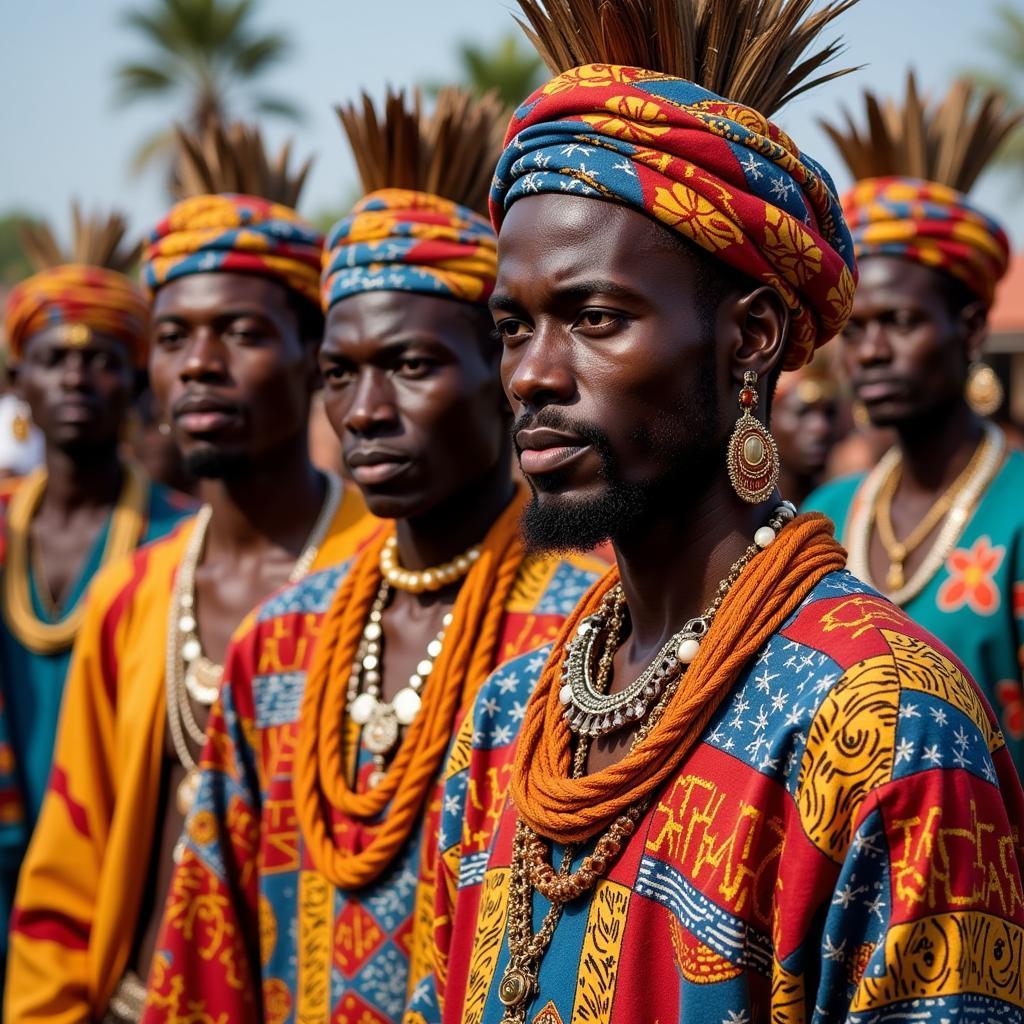The African Continental Free Trade Agreement and India: A New Era of Economic Cooperation
The African Continental Free Trade Agreement (AfCFTA), the largest free trade area in the world, is poised to transform the African economic landscape. With its potential to unlock significant opportunities for trade and investment, the AfCFTA has attracted global attention, including that of India, a major economic power with strong historical ties to Africa. This article explores the key aspects of the AfCFTA and its implications for India, highlighting the potential for enhanced economic cooperation and mutual benefits.
The African Continental Free Trade Agreement: A Game Changer
The AfCFTA, launched in 2019, aims to create a single market for goods and services across the African continent. It seeks to eliminate tariffs, simplify customs procedures, and harmonize trade rules. The agreement envisions a free trade area with a combined GDP of over $3 trillion, a population of 1.3 billion people, and a total market size of over $2.5 trillion. The AfCFTA has the potential to:
- Boost Intra-African Trade: By eliminating trade barriers, the AfCFTA is expected to significantly increase trade within Africa. Currently, intra-African trade is relatively low, accounting for only about 16% of total trade. The AfCFTA aims to increase this figure to over 60% within the next decade.
- Attract Foreign Investment: The AfCFTA is expected to attract significant foreign investment into Africa. By creating a more stable and predictable business environment, the agreement is expected to make it easier for businesses to operate in Africa, boosting investor confidence.
- Promote Economic Diversification: The AfCFTA is expected to promote economic diversification in Africa. By creating new opportunities for trade, the agreement is expected to help African countries move away from reliance on commodities and develop new industries.
India’s Growing Relationship with Africa
India has long enjoyed a strong relationship with Africa, rooted in historical, cultural, and economic ties. India has been a major trading partner of African countries for decades, with bilateral trade exceeding $100 billion in recent years. India’s engagement with Africa has been further strengthened in recent years, with a renewed focus on economic and development cooperation. India has been actively supporting Africa’s development through various initiatives, including:
- Lines of Credit: India has extended lines of credit worth billions of dollars to African countries, helping to fund infrastructure projects, healthcare facilities, and other development initiatives.
- Capacity Building Programs: India has implemented several capacity building programs in Africa, providing training and technical assistance in various sectors, including agriculture, healthcare, education, and IT.
- Investment in Africa: Indian companies have been increasingly investing in various sectors in Africa, including mining, manufacturing, retail, and IT.
- Engagement with Regional Organizations: India has actively participated in regional organizations like the African Union and the Common Market for Eastern and Southern Africa (COMESA) to strengthen ties with Africa.
AfCFTA and India: A Synergistic Partnership
The AfCFTA presents a unique opportunity for India to deepen its economic relationship with Africa. The agreement aligns well with India’s “Act East” policy, which aims to strengthen economic and strategic partnerships with countries in Asia and Africa. India’s expertise in various sectors, including pharmaceuticals, IT, manufacturing, and agriculture, can contribute significantly to Africa’s economic development.
Benefits for India:
- Access to a Large Market: The AfCFTA offers Indian businesses access to a vast and growing market of over 1.3 billion consumers. This provides significant opportunities for Indian companies to expand their exports and establish a presence in Africa.
- Investment Opportunities: The AfCFTA is expected to generate significant investment opportunities in Africa. Indian companies can leverage this opportunity to invest in various sectors, including infrastructure, manufacturing, and technology.
- Strategic Partnership: The AfCFTA provides a platform for India to strengthen its strategic partnership with Africa. By supporting the agreement, India can enhance its political and economic influence in the region.
Benefits for Africa:
- Technology Transfer: India can contribute significantly to Africa’s development by sharing its expertise in technology, manufacturing, and other sectors. This can help African countries to develop their economies and create new jobs.
- Infrastructure Development: Indian companies have a strong track record in infrastructure development. They can play a crucial role in building roads, railways, power plants, and other essential infrastructure projects in Africa.
- Access to Indian Expertise: The AfCFTA provides a platform for African countries to access Indian expertise in various sectors, including agriculture, healthcare, education, and IT. This can help African countries to improve their skills and knowledge base.
Challenges and Opportunities
While the AfCFTA presents numerous opportunities, it also presents challenges.
- Implementation Challenges: The successful implementation of the AfCFTA will require coordinated efforts from all member states. This includes harmonizing trade policies, simplifying customs procedures, and addressing infrastructure bottlenecks.
- Competition from Other Global Powers: India will face competition from other global powers, such as China and the European Union, which are also seeking to expand their economic ties with Africa.
- Political Instability: Political instability in some African countries could pose a challenge to the implementation of the AfCFTA and investment in the region.
Despite these challenges, the AfCFTA presents a unique opportunity for India to strengthen its economic and strategic partnership with Africa. By embracing the potential of the agreement and working collaboratively with African countries, India can play a crucial role in fostering economic growth and development in the region.
Key Takeaways:
- The African Continental Free Trade Agreement (AfCFTA) is a transformative agreement with the potential to unlock significant opportunities for trade and investment in Africa.
- India has a strong historical and economic relationship with Africa, and the AfCFTA presents a unique opportunity to deepen this partnership.
- The AfCFTA can benefit both India and Africa by promoting economic growth, creating new jobs, and fostering technological development.
- Despite challenges, the AfCFTA offers a platform for India to contribute to Africa’s development and establish itself as a key partner in the region.
Frequently Asked Questions:
Q1: How can Indian businesses benefit from the AfCFTA?
A1: Indian businesses can benefit from the AfCFTA by gaining access to a vast and growing market in Africa, finding investment opportunities in various sectors, and establishing a stronger presence in the region.
Q2: What are some key sectors for Indian investment in Africa under the AfCFTA?
A2: Key sectors for Indian investment in Africa include infrastructure, manufacturing, technology, agriculture, healthcare, and pharmaceuticals.
Q3: What are the potential challenges to the success of the AfCFTA?
A3: Potential challenges include implementation issues, competition from other global powers, and political instability in some African countries.
Q4: How can India overcome these challenges and ensure its success in the AfCFTA?
A4: India can overcome these challenges by working collaboratively with African countries, fostering strong bilateral relationships, and addressing issues related to trade policy, infrastructure, and political stability.
Q5: What are some key initiatives that India can undertake to enhance its engagement with Africa under the AfCFTA?
A5: Key initiatives include providing financial assistance, investing in infrastructure projects, sharing technological expertise, and supporting capacity building programs in Africa.
Q6: How will the AfCFTA impact India’s overall economic relationship with Africa?
A6: The AfCFTA is expected to significantly strengthen India’s economic relationship with Africa, creating new opportunities for trade, investment, and collaboration.
Q7: What is the long-term vision for India-Africa economic cooperation under the AfCFTA?
A7: The long-term vision is to establish a mutually beneficial and sustainable economic partnership between India and Africa, based on shared interests, collaboration, and mutual respect.
This is a dynamic and evolving area, and India’s engagement with the AfCFTA is expected to continue to grow and evolve in the coming years.


